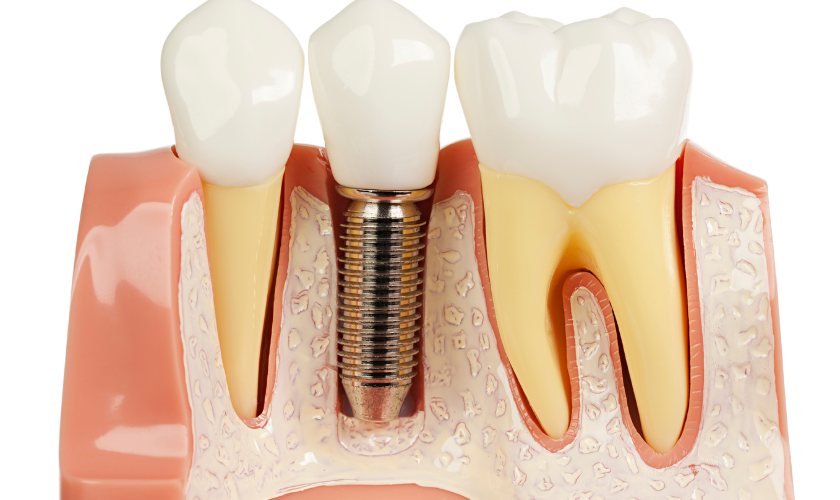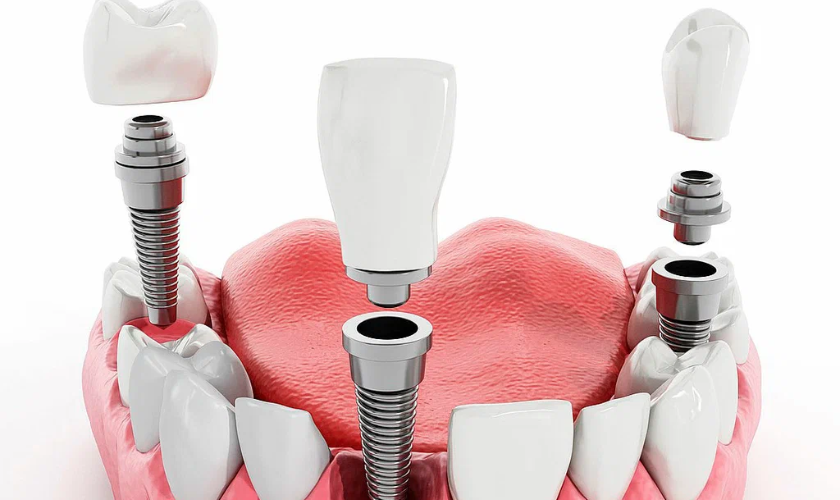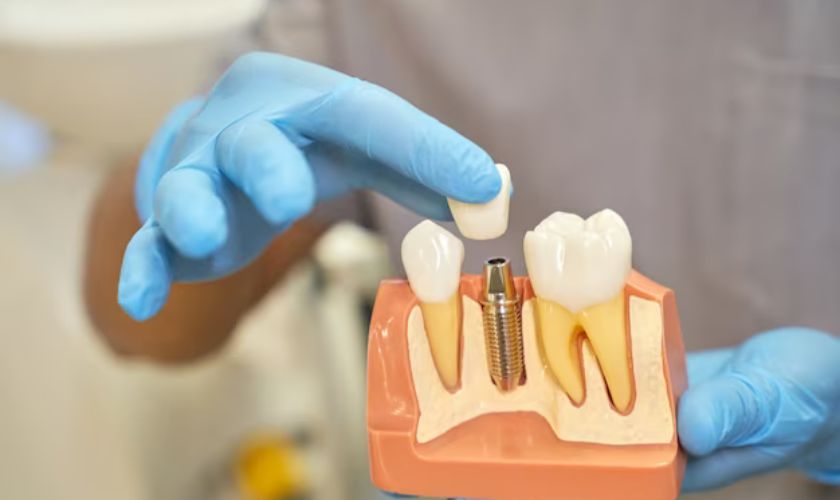
Welcome to our comprehensive guide on dental implants in Winfield. If you’re considering dental implants, this resource is your go-to source for essential information. Dental implants are a transformative solution for missing teeth, providing stability, aesthetics, and functionality akin to natural teeth. In this guide, we’ll delve into the key aspects you should know before beginning your dental implant journey in Winfield. From understanding the implant procedure, evaluating candidacy, exploring benefits and potential risks, to post-implant care, we’re here to equip you with the knowledge needed to make informed decisions and achieve a confident, radiant smile.
Understanding Dental Implants
1. Definition and Composition:
A. Dental implants are artificial tooth roots made of biocompatible materials like titanium, surgically placed into the jawbone.
B. These implants provide a stable foundation for replacement teeth, supporting crowns, bridges, or dentures to restore natural-looking smiles and functionality.
2. Integration and Osseointegration:
A. Dental implants undergo osseointegration, where they fuse with the surrounding bone over a few months.
B. This process ensures a strong bond, anchoring the implant securely in the jawbone, mimicking the stability of a natural tooth root.
The Dental Implant Procedure
1. Pre-Surgical Assessment and Planning:
A. Before the implant procedure, a comprehensive dental examination and imaging (X-rays, CT scans) are conducted to assess the jawbone’s health, structure, and density.
B. The dentist uses these assessments to create a customized treatment plan, determining the optimal implant placement and ensuring the patient is a suitable candidate.
2. Surgical Procedure Overview:
A. The implant surgery involves making an incision in the gum to expose the jawbone, where the implant will be placed.
B. The dental implant, typically a titanium post, is then securely inserted into the bone. After this placement, the gums are stitched, and a healing period follows to allow osseointegration.
Candidacy for Dental Implants
1. Oral Health and Bone Density:
A. Good oral health is crucial for candidacy, ensuring healthy gums and a lack of untreated dental issues like decay or gum disease.
B. Adequate bone density in the jaw is necessary to support the implant. In cases of insufficient bone, bone grafts or other procedures may be recommended.
2. General Health and Lifestyle Factors:
A. Overall health is considered, and conditions such as uncontrolled diabetes or active cancer might affect candidacy.
B. Lifestyle factors like smoking can impact healing and the success of dental implants, so quitting or reducing smoking may be advised for better candidacy.
Benefits and Advantages
1. Enhanced Aesthetics and Functionality:
A. Dental implants provide a natural appearance, seamlessly blending with existing teeth and enhancing one’s smile and facial aesthetics.
B. They restore proper biting and chewing functions, allowing individuals to enjoy their favorite foods without discomfort or limitations.
2. Long-Term Durability and Reliability:
A. Dental implants are a long-lasting solution, often lasting a lifetime with proper care and maintenance.
B. Compared to traditional dentures or bridges, dental implants offer a more reliable and permanent tooth replacement option, eliminating the need for frequent replacements or adjustments.
Potential Risks and Considerations
1. Risk of Infection and Complications:
A. Any surgical procedure carries a risk of infection at the implant site, which can be mitigated through proper pre and post-operative care and antibiotics.
B. Potential complications include implant failure, nerve damage, or sinus problems, although these are rare and often manageable with professional care.
2. Cost and Insurance Coverage:
A. Dental implants can be costly, and the total expense includes the implant, abutment, and crown costs, which might not be fully covered by insurance.
B. Individuals should consider their budget and explore financing options or dental plans that can help manage the costs associated with dental implants.
Post-Implant Care and Maintenance
1. Oral Hygiene Practices:
A. Maintaining excellent oral hygiene is crucial after dental implant surgery to prevent infection and ensure the implant’s longevity.
B. Regular brushing, flossing, and using an antimicrobial mouthwash help keep the implant area clean and free from plaque buildup.
2. Regular Dental Check-ups:
A. Routine follow-up appointments with the dentist are essential for monitoring the implant’s integration, overall oral health, and the condition of the restoration (crown, bridge, etc.).
B. Dentists can identify any potential issues early and provide appropriate interventions to ensure the long-term success and functionality of the dental implant.
Cost and Financing Options
1. Cost Factors:
A. The cost of dental implants varies based on factors such as the number of implants needed, location, complexity of the procedure, and the type of restoration (crown, bridge, or denture).
B. Additional costs may include pre-surgery treatments, post-surgery follow-ups, and imaging.
2. Financing Options:
A. Patients can explore various financing options such as dental insurance coverage, payment plans through the dental office, healthcare credit cards, or loans to manage the cost of dental implants.
B. Discussing financial options with the dental provider and considering insurance coverage can help individuals make informed decisions regarding their investment in dental implant treatment.
Dental implants in Winfield offer a transformative solution, providing aesthetic, functional, and long-lasting benefits. Understanding candidacy, potential risks, and maintenance is key. Despite costs, various financing options empower individuals to attain a confident smile and enhanced oral health through this innovative dental procedure.





